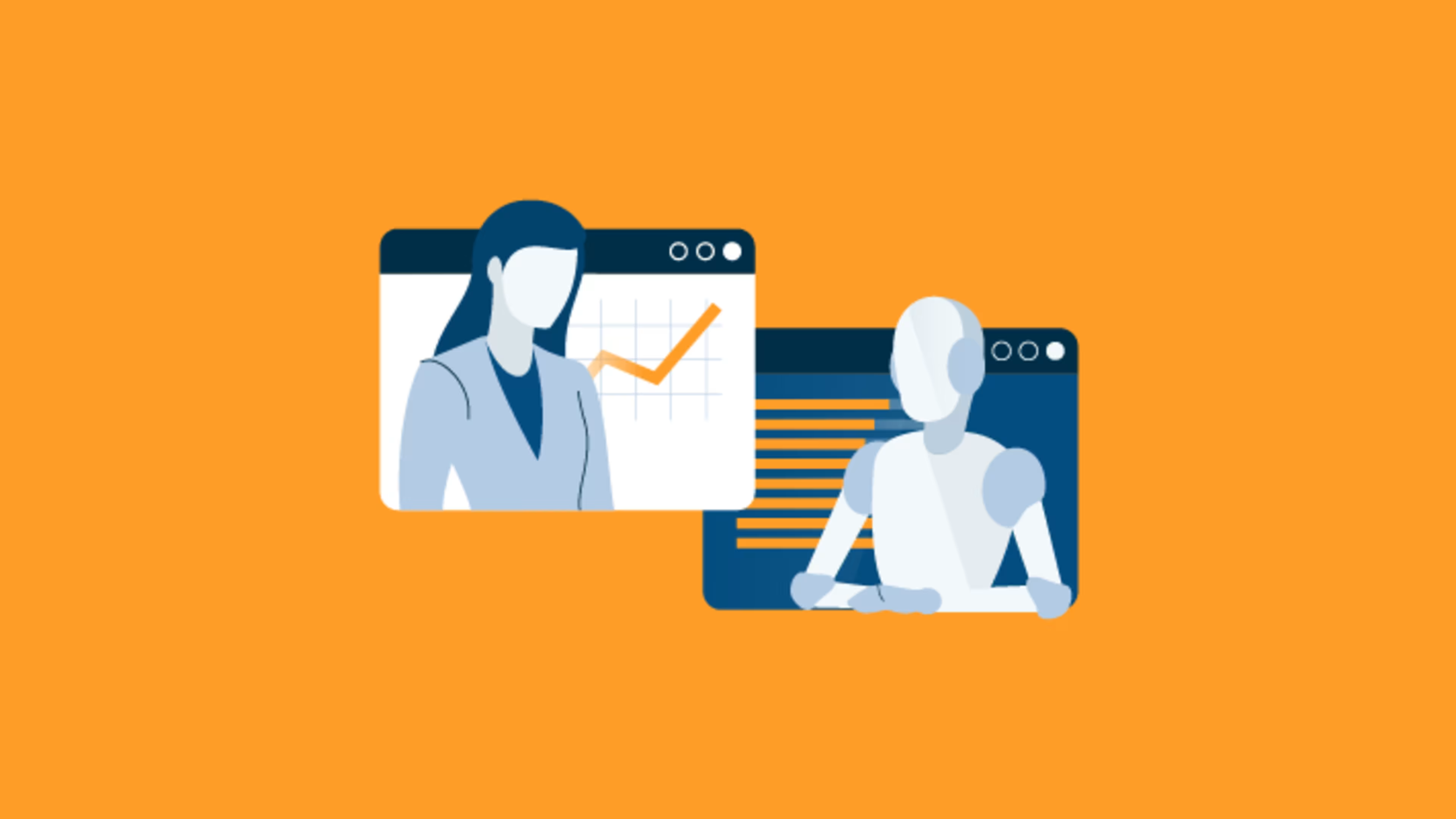In this report, we define and compare artificial intelligence software and business intelligence software to help you decide which one aligns with your business goals.
Business intelligence (BI) software is often mistaken for artificial intelligence (AI) software, as both help businesses make data-driven decisions. The two software tools, however, have distinct functionalities and features. AI software mimics human behavior and learning patterns to build and develop intelligent applications from scratch. On the other hand, BI software helps organizations analyze historical performance data to generate actionable insights and improve operational decision-making.
In this report, we highlight the similarities and differences between the two software categories to help you identify which one is right for your business.
What is artificial intelligence software?
Artificial intelligence (AI) software mimics human behavior and learning patterns. It uses machine learning, predictive analytics, and deep learning capabilities to build and develop intelligent applications from scratch. AI software is used in varied business areas, from customer service and sales (as chatbots) to data analysis and IT tasks automation. Some popular examples of artificial intelligence software include Google Cloud, Azure, Cortana, and Amazon Alexa.
AI software works in tandem with the Internet of Things (IoT) to collect data and use it for quality management, equipment maintenance, supply chain management, insight tracking, demand forecasting, enterprise network management, and customer management.
Find the right service for your business in Capterra's list of Artificial Intelligence companies in the United States.
What is business intelligence software?
Business intelligence (BI) software helps organizations analyze historical performance data and other data sources to generate actionable insights, which helps improve operational decision-making. It can analyze various types of data, such as customer data, finance data, production data, human resource data, and contact data.
A BI tool collects raw data from internal and external sources and runs queries to analyze it. The tool uses interactive dashboards and other forms of data visualization to present the data. Performance management teams use BI tools to convert complex data into understandable visuals such as charts, graphs, infographics, and animations.
Our lists of data analytics and business intelligence companies by location can help you find the services you’re looking for.
Data analytics and business intelligence companies in the United States
Data analytics and business intelligence companies in Chicago
Data analytics and business intelligence companies in Atlanta
Data analytics and business intelligence companies in New York City
Data analytics and business intelligence companies in Dallas
What do they have in common?
Artificial intelligence software and business intelligence software do not have any significant similarities, except that, in some cases, they complement each other. For instance, AI-enabled business intelligence software systems provide clear, actionable insights from raw data.
AI-powered software scrutinizes each datapoint at a granular level to gather actionable insights and help businesses use them for real-world business decisions. By working in conjunction with AI, BI tools can synthesize massive amounts of data into methodical plans of action.
Artificial intelligence software features
Business intelligence software features
Which tool is right for you?
If your business needs to process massive amounts of data, automate business operations—such as predicting machine maintenance, performing preventive maintenance, automating recurring tasks, managing process control, and prescribing solutions—artificial intelligence (AI) software is the right choice.
AI software uses machine learning to gather data from multiple sources, turn it into actionable information, and make more accurate predictions than humans.
If your business needs to collect, track, publish, and share performance metrics, real-time updates, benchmarking, and visual data analytics, then a business intelligence platform is a better option. BI tools offer advanced insights for analyzing data, benchmarking, and analyzing business performance, thus facilitating data-driven decisions.
Once you’ve decided which software to use, head to our artificial intelligence software and business intelligence software category pages where you can find a sortable list of products, software reviews from verified users, and comprehensive buyers guides.
If you wish to narrow down your search to only the most popular and highest-rated solutions, visit Capterra’s Shortlist reports for the top artificial intelligence software and business intelligence software tools—our reports are based on an analysis of thousands of user reviews.
Top-rated artificial and business intelligence software
This product is among the top rated in both software categories.
Trial/Free Version
- Free Trial
- Free Version
Device compatibility
Note: Reviews and ratings data in the product cards is as of May 18, 2022. New reviews may have been added since the publication of this article, so the reviews data in this piece may not reflect current conditions.
The products in the category comparison images are examples to show a feature in context and are not intended as endorsements or recommendations by Capterra. They have been obtained from sources believed to be reliable at the time of publication.
Be listed under Capterra’s 2022 Shortlist reports for artificial intelligence and business intelligence software. Learn more about the Capterra Shortlist methodology here.
Meet our software market definition for artificial and business intelligence software:

